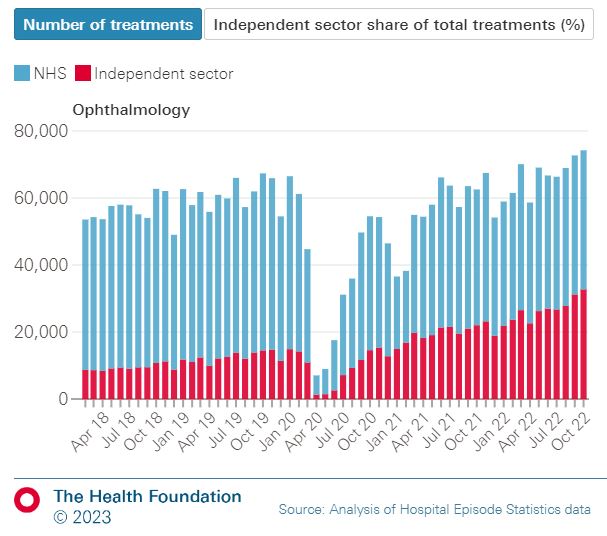The Department of Health and Social Care has today published its Elective recovery taskforce implementation plan. The plan covers England and focuses on ‘increasing the use of independent sector capacity across a broader range of specialties, helping to get NHS waiting times down and ensuring every patient can realise their right to choose where they receive their NHS care’.
We will publish an analysis of the report in the coming days, outlining the key implications for ophthalmology and the actions we’ll be taking to make the case for the investment needed in NHS ophthalmology services and its workforce.
Responding to the publication of the Elective recovery taskforce implementation plan, RCOphth President Professor Ben Burton said:
“The government’s elective recovery taskforce has rightly recognised the urgent need to expand diagnostic capacity to tackle NHS backlogs. In ophthalmology alone we have almost 650,000 patients waiting for an appointment. Incorporating eye services into community diagnostic centres is vital to help us prevent avoidable sight loss.
The recommendation that commissioners take a more strategic approach to delivering capacity across the NHS and independent sector is welcome, ensuring capacity is available where patient need is greatest. We also are pleased that government has listened to our representations and emphasised the need for independent sector providers to provide training where they are delivering NHS-funded procedures.
I am very concerned however that the government risks seeing the independent sector as a panacea, in its ambition to greatly increase its provision in the NHS. In ophthalmology more than half of NHS-funded cataracts are now delivered by the independent sector. While this has helped to bring down the cataract backlog, the overall impact on services has been worrying – 58% of NHS ophthalmology units say that independent sector providers are having a negative impact on patient care and services in their area.
We must learn lessons from parts of the health system like dentistry, where access to NHS services has become difficult leading to growing health inequalities. The government must not forget that NHS services exist to deliver comprehensive care for all conditions, including rarer diseases. This means the primary focus needs to remain on investing in the NHS workforce and infrastructure to ensure we have comprehensive sustainable services into the future, which also provide training and world class research.”

